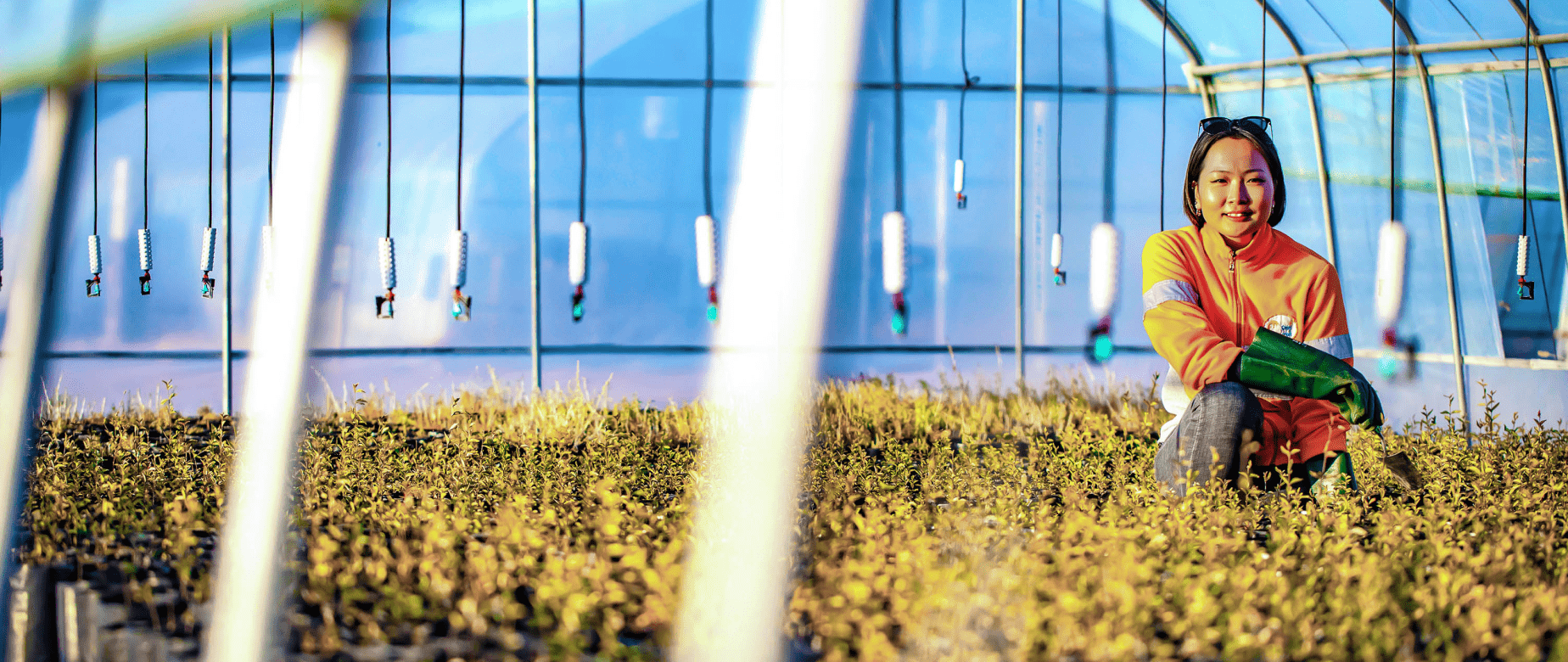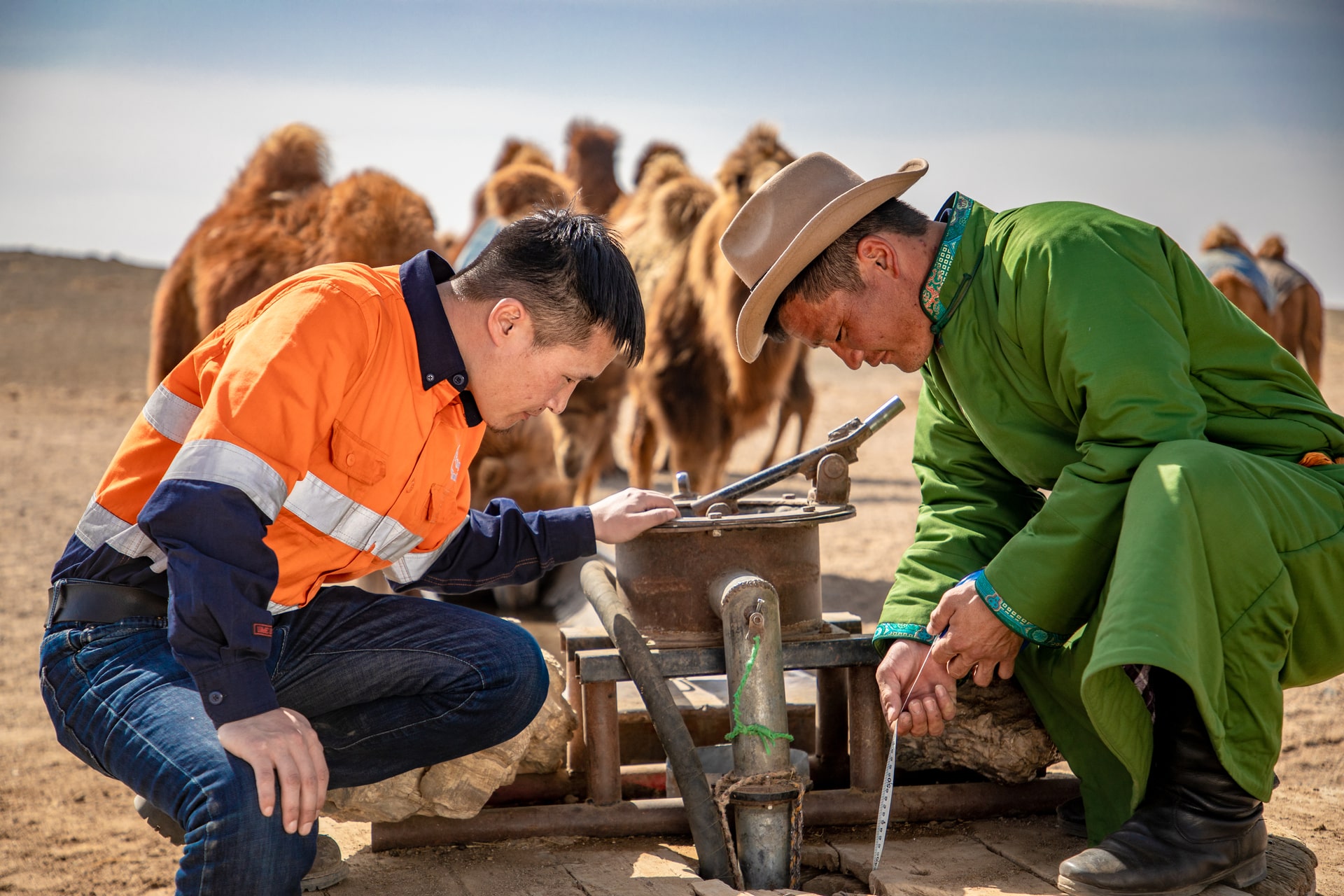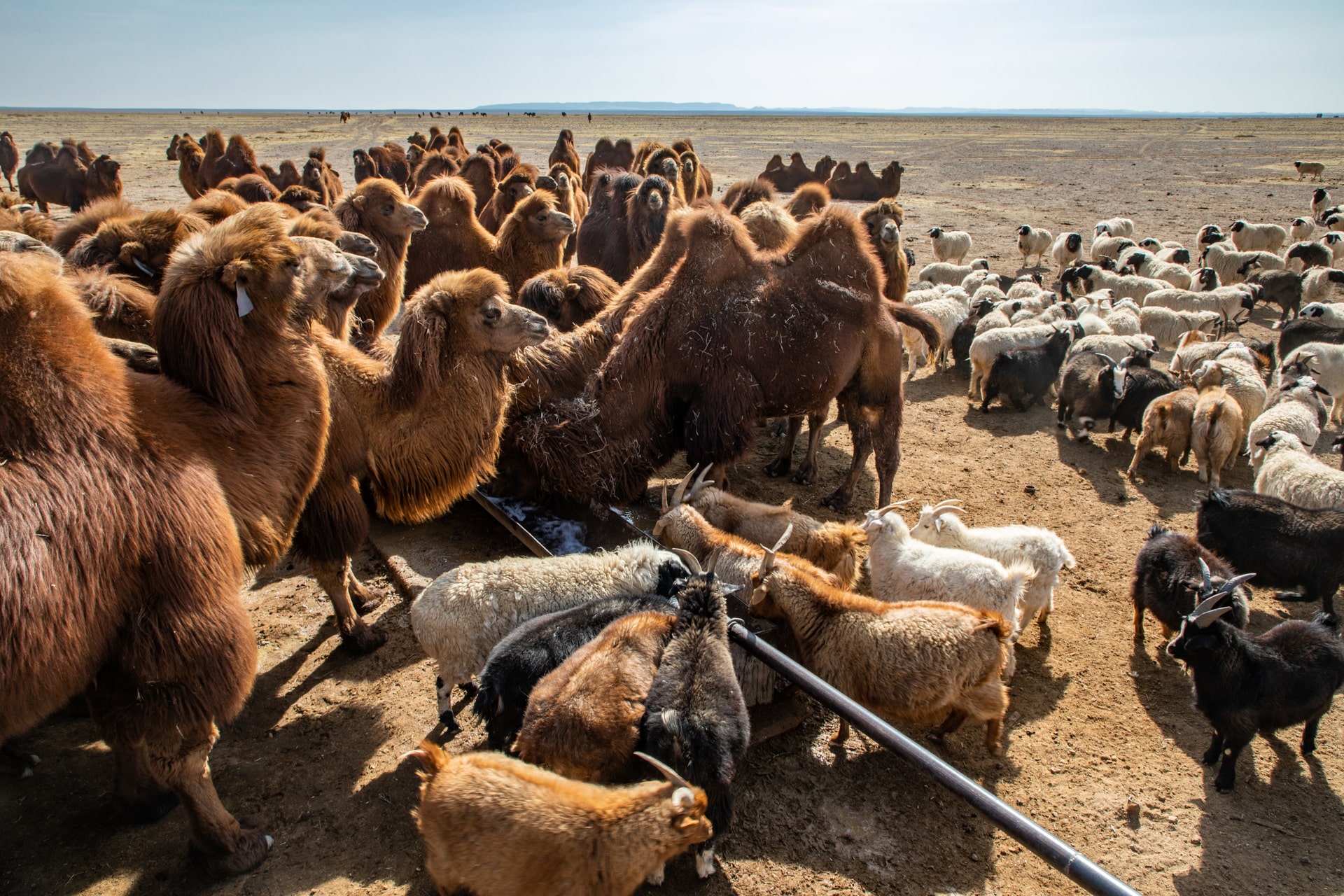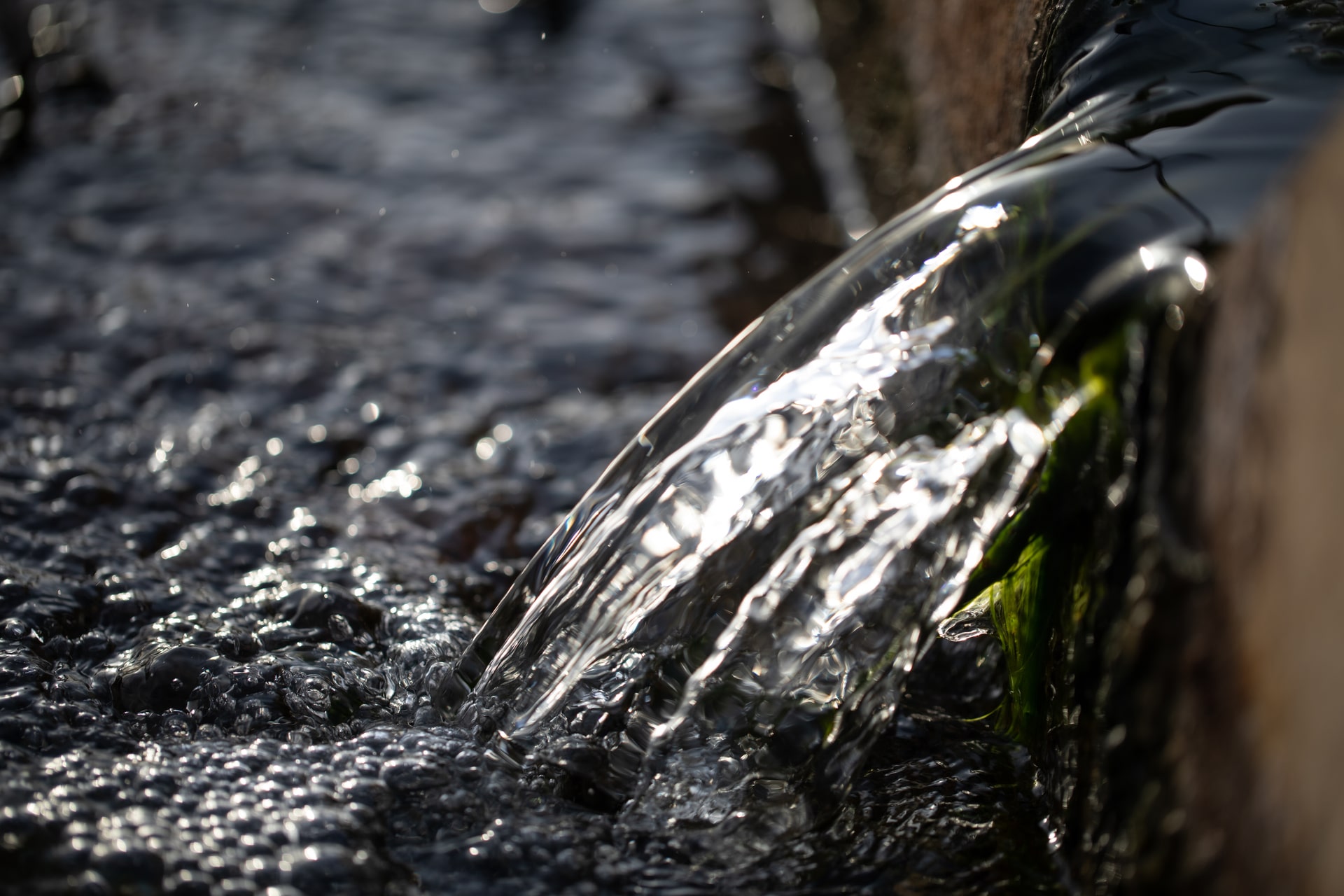
Social Responsibility
Oyu Tolgoi is committed to strengthening our relationships with communities where we operate, building mutual respect, active partnerships and long-term sustainable developments with our neighbours.
Preventing and mitigating potential risks and negative impacts of our operations on the environment and local communities are essential components of our commitment to social responsibility. We undertake local initiatives and community participation projects, programs and partnerships to support local development.
We adhere to a management system to drive our corporate social responsibility and embed it in our day-to-day operations. These policies and standards are based on Mongolian laws and regulations and Rio Tinto’s own industry-leading corporate standards.

Oyu Tolgoi LLC’s policies and standards prioritise the principles of sustainable development:
- Realisation of environmental commitments and demonstrating leadership
- Contributing to social development
- Supporting and strengthening local businesses and economic development
- Strong corporate governance and compliance with our code of corporate conduct and all legal regulations.
Tripartite Council
The Tripartite Council of Khanbogd soum (TPC) was established in 2015 with equal representation of the Khanbogd soum administration, the herder community, and Oyu Tolgoi LLC. The TPC is the engagement platform for the parties to inform and address various topics related to the herders, pasture and water.
It started from the dispute resolution process of two complaints that were formally lodged to Office of the Compliance Advisor/Ombudsman (CAO) by the local herders in 2012 and 2013.
TPC parties are committed to ensuring implementation of the two agreements and meet quarterly to monitor implementation progress.

Community Newsletter
We have been publishing a bi-monthly Community newsletter since 2010, featuring the news and developments of both the local communities and the company. If you would like to share any news and stories, contact erdenetogtokhd@ot.mn.

Oyu Tolgoi LLC signed a Cooperation Agreement with Umnugovi aimag and Khanbogd soum in 2015. Under the agreement, the Gobi Oyu Development Support Fund (Gobi Oyu DSF) was established in September 2015.
Oyu Tolgoi grants US$5 million every year to the Gobi Oyu DSF to fund local sustainable development in:
- Water management
- Environmental management (rehabilitation, biodiversity and ecological balance)
- Traditional livestock husbandry and pastureland management
- National history, culture and tourism
- Basic social services (health, education, vocational training and employment)
- Local business development and procurement
- Infrastructure and investment projects.
Umnugovi aimag’s social and infrastructure development
We are committed to improving the infrastructure of Dalanzadgad, Khanbogd, Bayan-Ovoo and Manlai – our partner soums – and Umnugovi Aimag. We implement infrastructure projects directly and through the Gobi Oyu DSF, investing in the local health, education, road, communication, energy and water supply improvement projects. We have invested US$69 million in local community infrastructure development projects.
Participatory environmental monitoring
Since 2011, Oyu Tolgoi has conducted participatory environmental monitoring programs with local herders and community members monitoring herders’ hand well water levels and observing wildlife and elm trees along the Undai river bed.

This information is reviewed and processed by local specialists and Oyu Tolgoi LLC and helps validate the results of environmental protection and monitoring initiatives implemented by Oyu Tolgoi LLC.
The TPC also developed a scientific environmental monitoring methodology suitable for herding practices. Soum residents and herders established the Munkh Nogoon Galba NGO /link to NGO information/ which has implemented environmental monitoring projects since 2018 including:
- Water resources and precipitation
- Soil degradation and soil moisture
- Pasture and beneficial plants
- Wildlife and natural open water bodies
- Air quality and ambient dust
- Comprehensive monitoring of sites potentially be impacted by mining operations
- Ecological education for young people and students.
As of first quarter 2021, 118 herders are participating in five types of monitoring at 168 points.